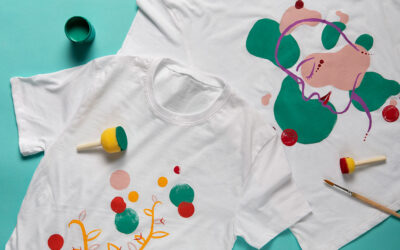Becoming a peaceful parent involves changing your underlying beliefs about children and your role as a parent. Yet, how can you change judgement and reactivity to respond more positively when your children challenge you?
Have you ever felt so frustrated with your children you could scream?
Recently, I discussed children’s ability to emotionally self-regulate with a dad. He agreed that young children are still learning about their emotions. He then added, “What about me? I go from neutral to anger in a flash when my child loses it or refuses to do as I ask. How can I change? It’s like I’m freewheeling and need emotional trainer wheels as a parent.”
In my more than 35 years of working with parents, he isn’t the only one who has been challenged by his children.
What is Peaceful Parenting?
Peaceful Parenting is an opportunity to better understand the dynamics between parent/carer and child. When you use this approach, you take on parenting challenges in more constructive ways. You become aware of what you are modelling through your responses to your child, as well as the importance of trying to meet the underlying needs that might be driving the behaviour. You also use skills your child needs to develop for future situations.
The Peaceful Parenting is a parenting method developed by Dr Laura Markham. Her philosophy is based on the understanding that authoritarian parenting is more isolating and frightening for children than it is nurturing. Children need support and unconditional love, in addition to understanding, empathy and effective communication from parents.
To be a peaceful parent, you must let go of the reigns of control. It means you’ll favour behaviour and communication that fosters collaboration, back-and-forth dialogue and the echanging of ideas between yourself and your child.
Becoming a calm and confident parent
Being a calm and confident parent starts with identifying triggers — yours and your child’s.
What trips your trigger? Usually reactivity comes from some underlying beliefs. Is it your expectations about how you think children should behave? Also, how you think you should behave as a parent? Your first thoughts might be “I’m not going to let my child get away with this just to get what they want” or “they should show some self-control”.
Peel back the layers that lead to these thoughts. You might believe children should respect authority. You might also believe that, as a parent, you need to be in control of your child. You might also believe that the only way to get a child to change is to use any one of the following coercive options: threaten, bribe, punish, say ‘1-2-3’, ground them, or give timeout. These beliefs arise out of fear and often limited information.
There are so many social pressures to be the ‘right’ kind of parent. Not to mention the messaging that parents should somehow ‘know how to deal with’ all aspects of raising children. For those raising children with diverse learning needs, health issues or emotional and identity struggles, the feelings are often intensified.
Children who are responsible and respectful
Ultimately, parents everywhere tell me they want their child to grow up to be responsible, respectful adults. They also want to be loving role models to their children.
The disconnect happens when you don’t know how to effectively achieve this. You rely on outdated, unloving and fear-based methods that serve to alienate your child, place your child in the role of a culprit, and leave them fearful and even dependent on you. These methods may bring quick ‘results’ but don’t bring productive and lasting change, respectful relationships or intrinsically motivated children, such as achieved by using the Parent Effectiveness Training skills based model of parenting. It is time-tested and current neuroscience validates it.
The combination of your judgmental thoughts and beliefs culminates in you feeling unhappy and then angry. Therefore, to change your intense reaction and feelings it makes sense to first change your thoughts and beliefs. Then, learn new assertive parenting skills. When you decide to change your underlying beliefs about children and about your role as a parent you free yourself to choose and use more loving and helpful responses rather than resorting to an angry reaction.
It is interesting how we accept the essential need to upgrade our skills in the workplace and invest time in study for our career, yet cling to outdated methods of parenting.
Peaceful parenting changes your thinking
One parent I recently helped decided to change her thinking from, “My child is such a pain. I’m always yelling at her” to “My child is learning to manage her emotions. I role model empathy and guide her assertively”. But that’s not all.
This same parent now uses the ABCC approach when she feels anger rising. She Acknowledges her anger and it begins to subside, she Breathes deeply and reaffirms her new beliefs about children and parenting. She asks herself and visualises what she most wants — harm or helping. She says to herself “I choose love not fear”. This pause gives her time to be Curious about the needs of her daughter and her own needs as a parent. Next she makes a Choice to use effective assertive parenting skills. Sometimes she forgets and the anger surfaces. At those times she apologises and proceeds with ABCC.
If you want to change your way of thinking, state your beliefs in a positive way and what you want to happen. Write them down (this helps form new pathways in the brain), pin them up, and say them frequently to replace the old ones. Be kind to yourself. It takes 30 days of making mistakes and practising to change a habit!


